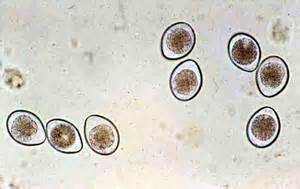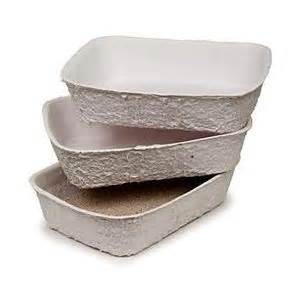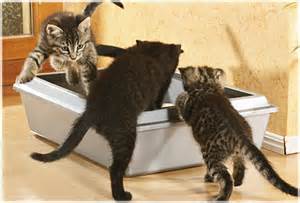As spring has transitioned into summer, the Maddie’s Shelter Medicine team has been focusing on what flourishes most this time of year: kittens and parasites! What comes to mind next? That’s right, diarrhea. Neonatal parasitic diarrhea is a common condition that can give any shelter a run for its resources. This week’s article will focus on a frequent culprit: the coccidian parasite Isospora.
Isospora ssp. are a type of protozoal parasite. Interestingly, these parasites can be found in the feces of healthy adult animals, resulting in no illness at all. Healthy animals become immune to Isospora and eventually clear the infection. However in young or immune-compromised animals, this type of coccidian parasite can invade the cells of the intestinal track resulting in severe inflammation. Inflammation interferes with the ability of the intestinal track to absorb nutrients and fluid. The resulting symptoms may include diarrhea with or without blood, vomiting, and weight loss. Rarely death may result from severe dehydration or secondary bacterial infections.
Isospora ssp. are diagnosed by the identification of oocysts via microscopic examination of feces. For most shelter puppies and kittens with diarrhea, diagnosis of Isospora will be presumptive due to the common nature of these organisms. Additionally, diagnosis can be challenging, as the coccidian organisms may not be shedding their oocysts at the time of fecal analysis. However, for refractory cases of diarrhea it is a good idea to submit feces for microscopic evaluation, whether performed in the shelter or at a veterinary diagnostic laboratory. Fecal analysis may confirm Isospora or reveal additional parasites resulting in a co-infection, requiring further treatment.

The current recommended treatment for Isospora ssp. in shelters is ponazuril. Ponazuril is an equine product used off-label as a coccidial-cidal agent for dogs and cats. Because coccidian parasites are so common and infection can be very severe, it is recommended to treat all puppies and kittens four weeks of age and older with ponazuril at the time of intake. Ponazuril can be purchased as Marquis Paste. It can then be diluted to 75mg/ml by mixing 10ml of paste with 10ml of water. Ponazuril is dosed at 30mg/kg once daily by mouth for 1-7 days depending on the presence and severity of diarrhea. Treatment may need to be repeated in severe cases.
Isospora may be spread through fecal-oral transmission, vector transmission or by ingestion of an intermediate host. In addition to minimizing the shedding of Isospora via prophylactic treatment, it is very important to minimize exposure to the infective oocysts through proper cleaning and disinfection. Oocysts are infectious immediately upon passage from the infected animal. Therefore, prompt removal of feces from play yards, housing units and litter boxes is essential to prevent exposure to litter mates and other shelter animals. Regular pest control is vital to prevent transmission via insects and rodents. Lastly, it is important to know that oocysts are environmentally persistent. For known or suspected cases of Isospora, deep cleaning of housing units with bleach diluted 1:32, or steam cleaning will ensure the oocysts are destroyed. Additionally, consider disposable litter boxes for kittens and adult cats with diarrhea as oocysts can remain in defects within the plastic of traditional litter boxes.

We hope you find this information useful as your shelter continues through the summer months of kittens, puppies and diarrhea! As with many pathogens encountered in shelters, Isospora can result in severe neonatal disease. However, with preventive techniques and good cleaning protocols, Isospora will not erupt in a diarrhea outbreak.
For information on fecal sample submission, visit the following link: https://ahdc.vet.cornell.edu/sects/Paras/


